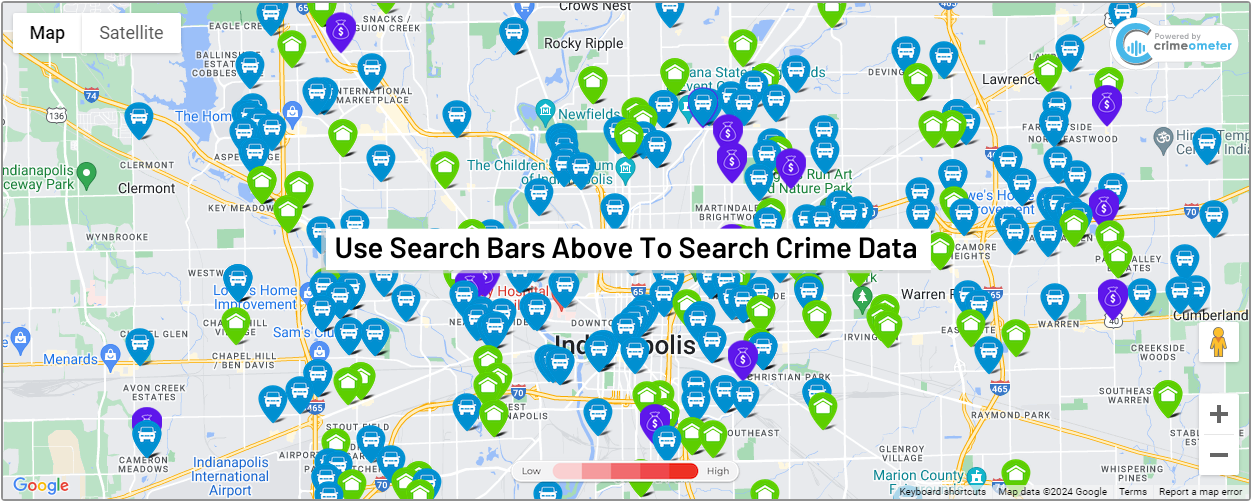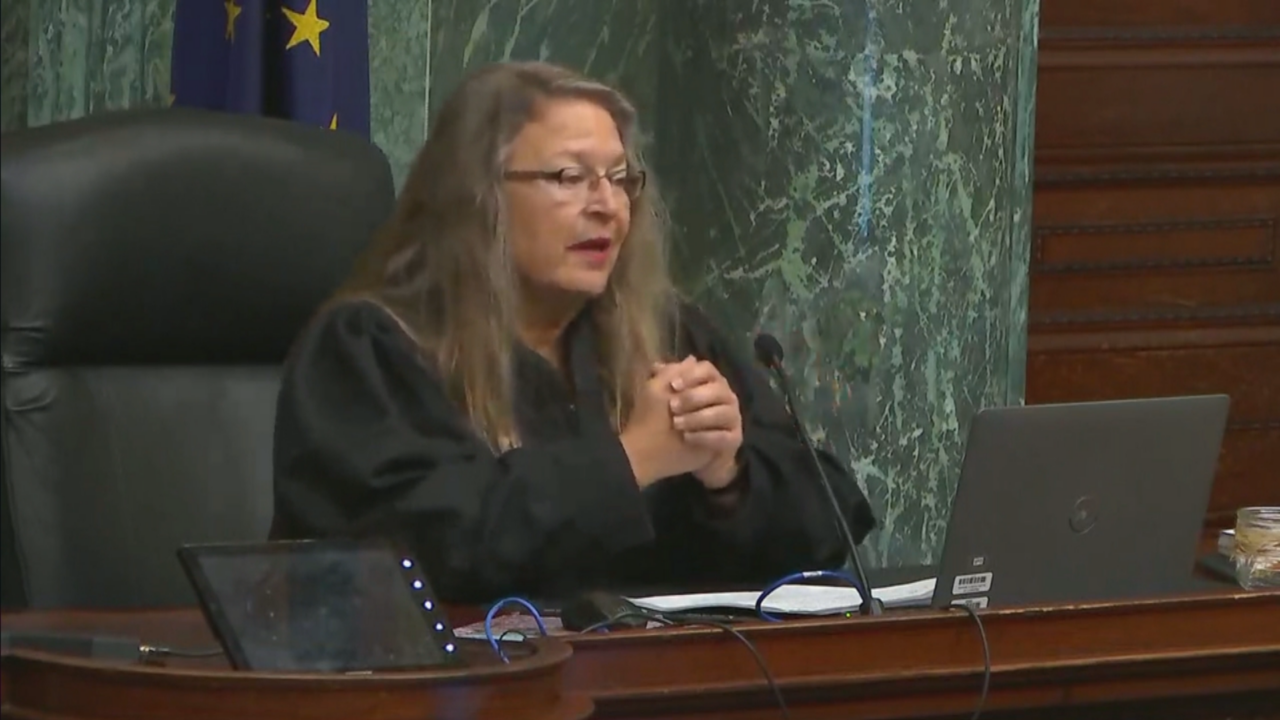Delphi murders judge rejects several requests from Richard Allen’s attorneys
FORT WAYNE, Ind. (WISH) — The special judge in the Delphi murders case on Monday rejected requests from the attorneys for suspect Richard Allen.
Allen, 51, of Delphi, was arrested on Oct. 28, 2022, for the February 2017 murders of 13-year-old Abigail “Abby” Williams and 14-year-old Liberty “Libby” German near the Monon High Bridge in Delphi.
Special judge Fran Gull first rejected a request to disqualify herself from the case.
She also declined the defense attorneys’ allegations that she’s treated the prosecution more favorably, or that she’s engaged in extrajudicial activity.
The special judge wrote in Monday’s rulings, “The Court has issued adverse rulings against the defendant, as well as against the State of Indiana. Adverse rulings do not support a reasonable basis for questioning the Court’s impartiality, nor are they grounds for disqualification, they are just adverse rulings.”
Gull also on Monday addressed concerns about the defense attorneys’ bills, noting that ones with documentation submitted from the defense attorneys, as required, have been addressed.
The judge also noted on Monday that she’s denied cameras in the Carroll County courtroom “due to its limited size and layout.”
Regarding the one time that the special judge allowed cameras in the court during a hearing that was canceled in her Allen County courtroom, Gull said the media outlet providing pool coverage did not comply with her directives regarding coverage and broadcasting of the proceedings.
“The Court lost confidence in the ability of the media to cover hearings appropriately,” she wrote in her Monday rulings.
The judge’s order issued June 3, 2024
“The Court has reviewed the Defense Second Verified Motion to Disqualify Judge And Request For Findings Of Fact And Conclusions Of Law Upon Denial Of This Request If This Court Denies This Request, filed May 17, 2024. As Trial Rule 52 is not applicable in criminal cases, the defendant’s request for Findings of Fact and Conclusions of Law is denied. Neely v. State, 297 N.E.2d 847 (Ind. App. 1973); Davis v. State, 642 N.E.2d 987 (Ind. App. 1994).
“The Court, however, will address each of defendant’s allegations in this Order. Defendant claims the Court directed the Carroll County Sheriff to ignore a subpoena. The Court directed an e-mail to counsel on June 14, 2023, regarding the witness refusing to cooperate with the service of the subpoena and demonstrating a willingness to fight the Deputy attempting service. The Court requested a report of the witness’ refusal to cooperate and be transported for the scheduled hearing and forwarded that report to counsel when it was received. The decision by the Deputy to leave without the witness was his and was not directed by the Court.
“Defendant claims the Court engaged in ex parte communication with the Carroll County Sheriff regarding defendant’s housing, transportation, and safety during jury selection and trial May 13-31, 2024. These communications were administrative in nature and did not address any substantive issues. The communications were directed to where the defendant would be housed during the trial and who would be conducting transportation. The Court did notify counsel where defendant would be housed during the trial (as he is still under the safekeeping order) in an e-mail, but did not inform counsel of the communication, as nothing substantively was discussed. The Court has set the defendant’s Motion to Vacate Safekeeping Order for hearing, but was required to cancel the hearing upon the filing of this pending Second Verified Motion to Disqualify.
“Counsel claim the Court invited the State to limit defendant’s Sixth Amendment right to present a defense. The Court has always required counsel in all criminal cases to follow the law relating to third-party perpetrators. The Court reminded counsel of their obligation to follow the law in the Court’s e-mail of April 28, 2024. Counsel claim the Court has disparaged them and ruled on defense pleadings without hearings.
“The Court’s comments about counsels’ performance were documented in the Court’s Order of April 30, 2024, regarding their handling of discovery materials. If pleadings on their face are not supported by the law or admissible evidence, judicial economy does not require a hearing. Allegations the Court has treated the Prosecution more favorably than the defense are unsupported by any admissible evidence provided by the defense at the March 18, 2024, hearing.
“The Court was notified on May 20, 2024, of an inquiry by the Indiana State Police to the Court Reporter via e-mail on May 9, 2024, regarding ex parte communication received by the Court from Gary Beaudette (which was previously provided to all counsel). The Court is unaware of the extent of any Indiana State Police investigation. Defendant blames the Court for ex parte pleadings which were inadvertently directed to the Prosecutor. The defense staff filed pleadings and marked them as ‘confidential’, apparently unaware that the ‘confidential’ marking makes them available to the State, but not the public. Counsels’ staff contacted this Court’s staff and were advised that the Statewide Odyssey Case Management System (not DoxPop as alleged in the pleading) has a distinct process for filing pleadings ‘ex parte’ as opposed to ‘confidential’. The Court did e-mail defense counsel a tutorial paper authored by JTAC explaining the process. Since that communication, defense counsel have had no issues with their staff properly filing ex parte pleadings.
“Accusations of violating Rules on Access to Court Records have been completely explained and dealt with, including by the Indiana Supreme Court in the first Writ of Mandamus filed by defendant. Counsel claim their Motions are treated differently than those Motions filed by the State. The Court has set hearings on pending Motions which have now been continued due to the filing of this Motion to Disqualify. When defendant files pleadings, the State is entitled to file a response. The Court follows Trial Rule 6 regarding time and gives the State twenty (20) days to respond. Defendant is also given twenty (20) days to reply to the State’s responses. Once the issues are closed, if a hearing is required, one will be set.
“Defendant asserts that the Court ignored his request to set aside two weeks for the defense case while refusing to set time limits on the Prosecution. On March 6, 2024, defendant filed a Motion for Speedy Trial. The Court granted that Motion on March 7, 2024, and set the case for speedy trial May 13-31, 2024. On April 30, 2024, defendant filed a Motion for a Pre-Trial Hearing, which the Court set for hearing on May 7, 2024. At no time prior to the May 7, 2024, hearing did defendant advise the Court that three (3) weeks for trial was inadequate. At no time prior to May 7, 2024, did defendant indicate a belief that three (3) additional weeks could be added to the trial without notice to the Court, witnesses, and more importantly, without notice to the potential jurors. While the Court agrees a continuance of the trial is harmful to the defendant and the State, it could have been avoided had counsel communicated prior to May 7, 2024.
“Counsel represent they notified the Court on or about October 4, 2023, that they would need two (2) weeks to present a defense, but the Court has no record of that communication, nor any recall of such communication. Counsels’ assertion that ‘Between all defense counsel with a combined seventy (70) years of experience not one time have they been told that a trial would absolutely end on a certain day and not go any longer’ is irrational and unreasonable. The Court is aware its colleagues across the state routinely give trial dates that begin on a set date and end on a set date.
“The Court is not required to guarantee equal time for both the defendant and the State. The Court is required to guarantee sufficient time on the calendar and sufficient notice to jurors and the parties to present their case, however long it takes. Had Counsel notified the Court within days of receiving the March 7, 2024, Court Order setting the case for speedy trial May 13-31, 2024, that the time allotted on the calendar was insufficient, the Court would have immediately rectified the situation and extended the trial to May 13 – June 14, 2024. Trial is now set for October 14 – November 15, 2024, as requested by the defendant.
“Counsel accuse the Court of engaging in extrajudicial activity. Counsel is correct that on July 9, 2023, the Court commented on a Facebook post about a softball tournament her granddaughter participated in in Delphi. The Court did not attend the tournament, but did say ‘Congratulations’ to her former daughter-in-law’s post about their team winning the tournament. If Counsels’ allegations in this part of their Motion are well-founded (regarding a potential witness’ alleged social media activities) and are presented to the Court for ruling, the Court will rule accordingly.
“Concerns about anticipatory rulings are not reasonable. Defendant asserts the Court has denied reasonable requests for funding. This is incorrect. Counsel is well aware of the amount of funds the Court has authorized for the defendant. The Court has requested the defendant to submit proper invoices and bills for Carroll County taxpayer funding. Invoices which have been submitted without appropriate documentation have been returned. The bill counsel refers to for $26,000 for investigative services from June 4, 2023, through October 16, 2023, was, in fact, returned to counsel as no documentation was provided for services. No documentation was submitted until quite recently. With that proper support and documentation, the Court authorized that invoice for payment on May 17, 2024. Defendant complains that public confidence in this case has eroded.
“As counsel should know, criminal cases are tried in a Court of law, not in the court of public opinion. An independent judiciary requires that judges decide cases according to the law and facts without regard to public clamor or fear of criticism. The Court continues to receive ex parte communications from the public criticizing the Court both personally and professionally, and threatening the Court with bodily harm and injury. The Court continues to provide these communications to the parties. The Court is not interested in ‘memes and other social media content that can be easily located on the internet’ (Paragraph 129 of defendant’s Second Verified Motion to Disqualify). The Court cannot be swayed by inappropriate and ridiculous outside influences.
“Defendant further claims the Court has refused to order the State to comply with discovery rules. The Court has set defendant’s Motion to Compel and Motion for Sanctions for hearing, which has been continued due to the filing of this Motion to Disqualify. The previous defense Motion to Compel was denied without hearing as it was unsupported by evidence.
“Defense counsel allege bias by the Court only allowing cameras in the Courtroom on one occasion. The Court has not allowed cameras in the Carroll Circuit Court due to its limited size and layout. The Court did allow cameras in the Allen Superior Court at the hearing conducted on October 19, 2023. The hearing was not conducted, and the media outlet providing pool coverage did not comply with the Court’s directives regarding coverage and broadcasting of the proceedings. The Court lost confidence in the ability of the media to cover hearings appropriately.
“The Court has issued adverse rulings against the defendant, as well as against the State of Indiana. Adverse rulings do not support a reasonable basis for questioning the Court’s impartiality, nor are they grounds for disqualification, they are just adverse rulings. Defendant’s Second Verified Motion to Disqualify Judge And Request For Findings Of Fact And Conclusions Of Law Upon Denial Of This Request, If This Court Denies This Request is denied.”


